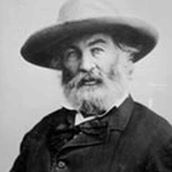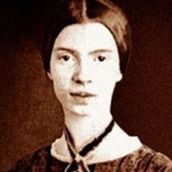
 Literature readings at St. Richard’s elicited some red-hot discussions this summer, some so vociferous that the atmosphere was “electric.”
Literature readings at St. Richard’s elicited some red-hot discussions this summer, some so vociferous that the atmosphere was “electric.”
A total of 105 people participated in four lively “Summoning the Divine: Literature Through the Lens of Faith” sessions at the Winter Park church. Attendees explored insights on organized religion, life, death, immortality, heaven and the soul from famous 19th century poets Walt Whitman (1819-1892) and Emily Dickinson (1830-1886).
“The discussions were vigorous and exciting,” said “Summoning the Divine” director Pamela Menke. “Everyone was actively involved, and each of the four meetings ending with ‘thanks’ and applause, no kidding! There was an electric current during these sessions – everyone felt it.”
In an ironic twist, the second Dickinson session was held the evening of the solar eclipse on Aug. 21, mirroring the fact that Dickinson saw a total eclipse in October 1875 and wrote a poem about it. So, Menke used that poem for the final two Dickinson meetings on Aug. 21-22.
Here’s the poem:
“It sounded as if the streets were running –
And then – the streets stood still –
Eclipse was all we could see at the Window
And Awe – was all we could feel.
By and by – the boldest stole out of his Covert
To see if Time was there –
Nature was in her Opal Apron –
Mixing fresher Air.”
A total of 53 people attended the two, two-day Dickinson sessions on July 18-19 and Aug. 21-22. A total of 52 people turned out for the two, two-day Whitman sessions on May 22-23 and June 19-20.
Menke said attendees of the Whitman sessions were surprised that Whitman was religious and wore the Quaker garb of plain clothes: “They were moved by the depth of Whitman’s compassion in his poem ‘Vigil Strange I Kept in the Field One Night’ (1864), based on Whitman’s observations as a field nurse on the battlefields of Chancellorsville and Fredericksburg immediately after the ceasefires (during the Civil War). As the title suggests, the poem is a vigil about war, death and hope.
“A slightly older soldier is speaking to his severely wounded comrade with whom he sits through the night. As the sun rises in the morning, the young soldier has died, and the older soldier gently buries him. As the participants considered the word ‘vigil,’ they discussed the vigil Jesus asked his disciples to keep on the evening of his betrayal. Since the Whitman session was held right after Easter and the sacred time of staying the wake to prepare for the joy of Resurrection, the participants (were) thinking about the poem as one of healing and what one might do to present to a dying person.”
Participants also discussed Whitman’s constant assurance of immortality throughout the additions and revisions he made to his poetry collection, “Leaves of Grass,” Menke said.
“The participants discussed the image of ‘a leaf of grass,’ suggesting it is community – America consisting of thousands of individuals (each a leaf) that make up the whole,” Menke said. “A leaf of grass is ordinary, democratic and, yet, unique and special. He calls ‘grass’ the ‘uncut hair of graves’ and asks in his 1855 poem ‘Song of Myself’:
‘And what do you think has become of the women and children?
They are alive and well somewhere,
The smallest sprout shows there is really no death …
All goes onward and outward, nothing collapses,
And to die is different from what any one supposed and luckier.’”
Those who attended the sessions of both authors commented on the differences between the personable, effusive, larger-than-life Whitman and the tiny, reclusive poet Dickinson, who described herself as “small like a wren” and lived her later life in almost total seclusion, Menke said.
“Startled by the clarity of Dickinson’s ‘call’ to be a poet, they learned that Dickinson was more than an eccentric, ‘nature’ poet and that she turned away from the strictures of her family’s Puritan-based Congregational Church to explore God and her faith through her poetry,” Menke said.
Attendees discussed verses from a popular Dickinson poem that cleverly reflects her disappointment with the organized church and the godly sustenance she receives from nature. Through nature, she hears God’s sermons:
“Some keep the Sabbath going to Church ––
I keep it, staying at Home —
With a Bobolink for a Chorister —
And an Orchard, for a Dome —
Some keep the Sabbath in Surplice —
I just wear my Wings —
And instead of tolling the Bell, for Church,
Our little Sexton — sings.
God preaches, a noted Clergyman —
And the sermon is never long,
So instead of getting to Heaven, at least —
I’m going, all along.”
Lovers of poetry can get their fill again in September, October and November when St. Richard’s holds its Fall 2017 “Summoning the Divine” series. Attendees will listen to poetry and writings from Wendell Berry, Gary Snyder, Linda Hogan and Mary Oliver.
Sessions will be held Sept. 25-26, Oct. 23-24 and Nov. 21-22.
For more information, email Menke at menkepamela@yahoo.com or call the church office at 407-671-4211.
